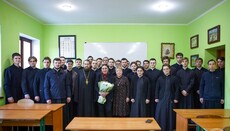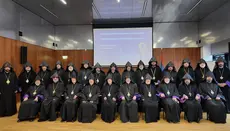Religious studies expert: social networks are a tool of recruitment of children to sects

"Now most of the recruitment – to ISIS and different sects – is done through social networks. And recruitment via the Internet, as practice shows, is much more effective than street recruitment. Street recruiters are specially trained to identify people who are experiencing stress, need a company or support and consolation. But in the street it is still very difficult to identify a person who will be more prone to psychological pressure. In social networks, it's much easier because everything is out in the open. Any personal information you post presents a danger to you first of all. There is a high probability that bad people will take advantage of it in bad purposes," said the professor.
"Sometimes parents notice that their child is like a robot, he does not act on his own, but as if driven by someone. Of course, parents should try to be aware of what sites and public social networks young people visit, what information about themselves they post, who they report to. Because it is always much easier to prevent than to cure the problem," continued the professor.
Alexander Dvorkin noted that sects use various means of consciousness manipulation and choose a specific methodology for recruitment in accordance with personal characteristics of an individual. "Some people are more suggestible, others are less suggestible. It depends on the situation in which a person finds themselves. If he/she has any problems, the harder the problem is, the more suggestible he/she will be," concluded the professor.
0
0
If you notice an error, select the required text and press Ctrl+Enter or Submit an error to report it to the editors.
Read also

Priests and laity of Rivne Eparchy donate blood for children with cancer
20 February 21:06

Kyiv seminary students meet with People’s Artist Larisa Kadochnikova
20 February 20:30

Bancheny Monastery reports provocation
20 February 20:14

Romanian Church to hold joint prayer for peace in Ukraine
20 February 16:46

Armenian bishops call on authorities to stop Church persecution
20 February 16:07






